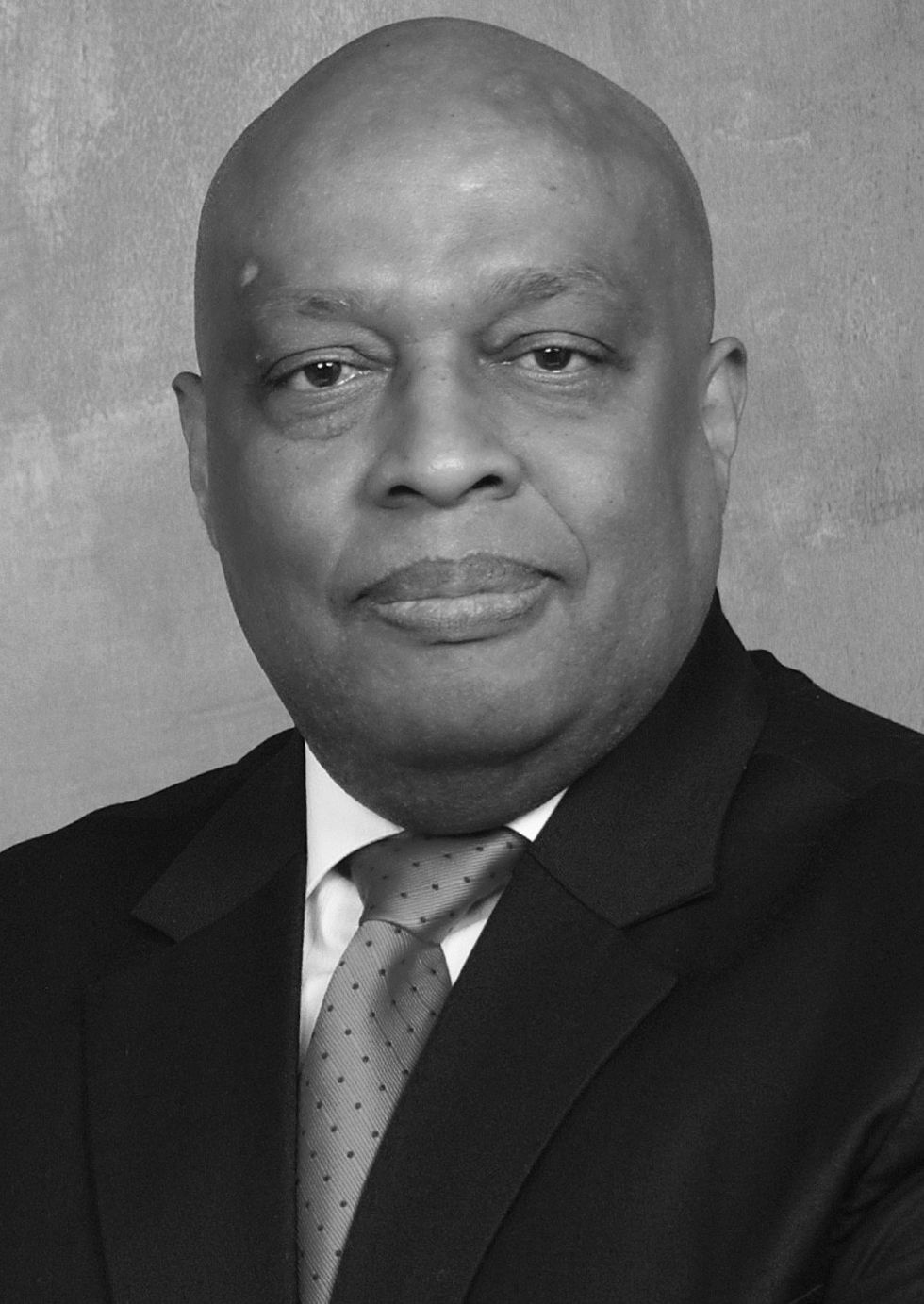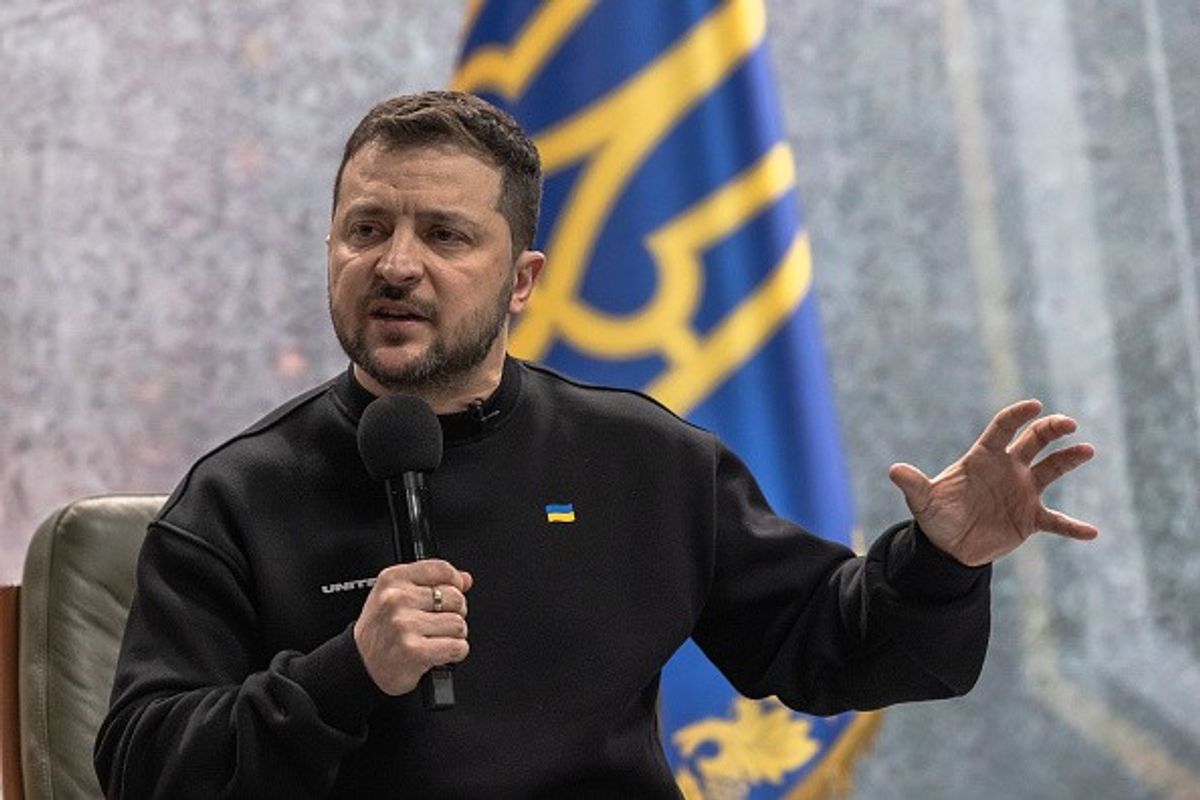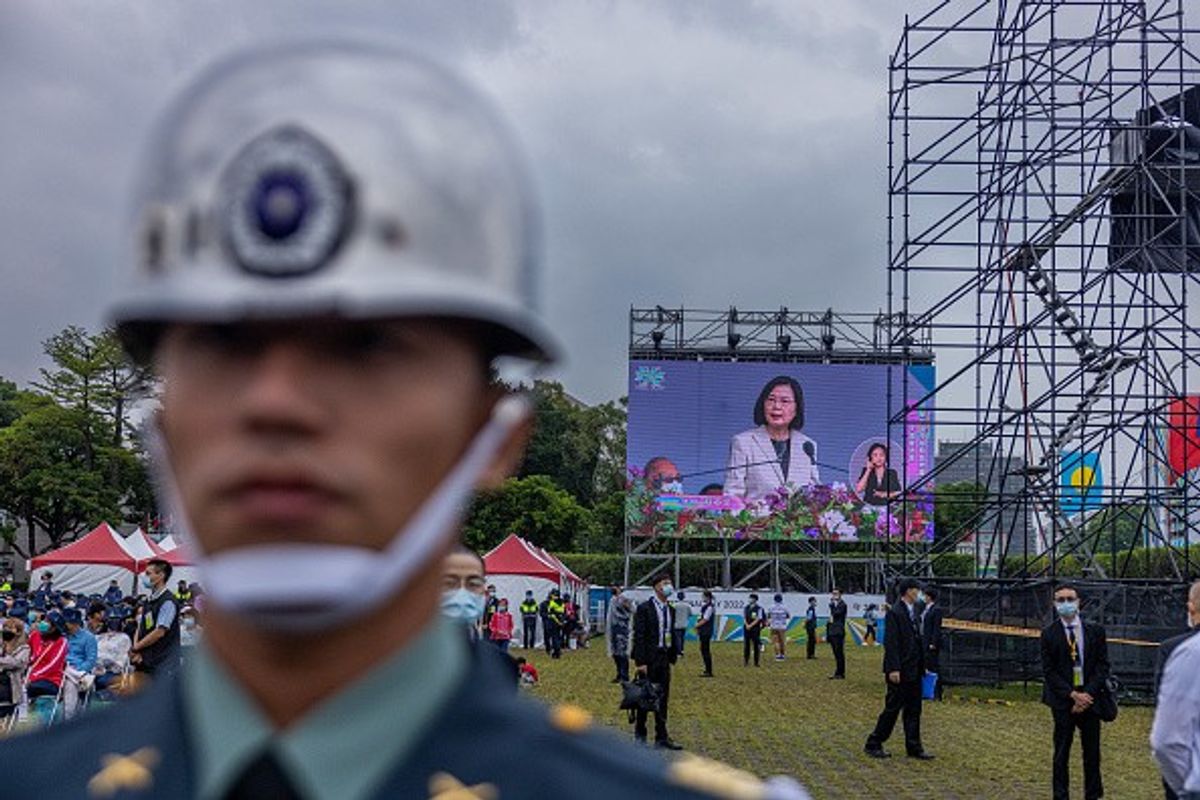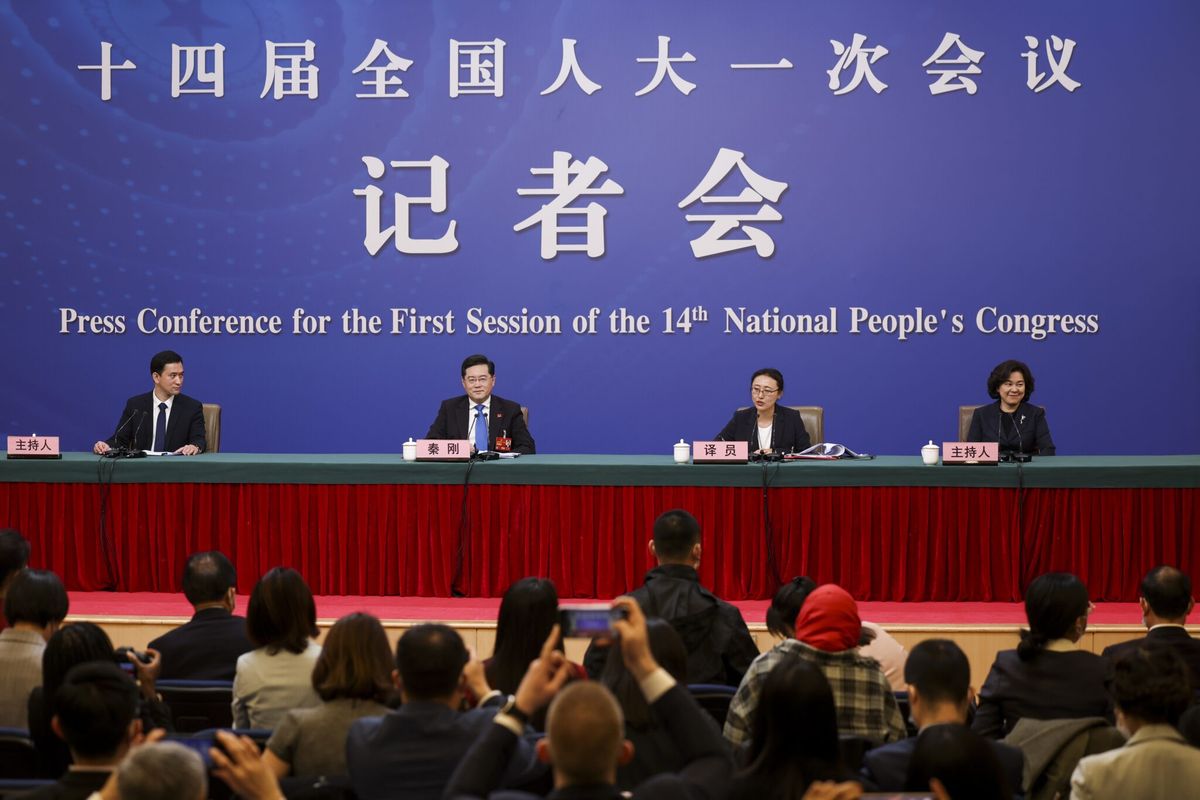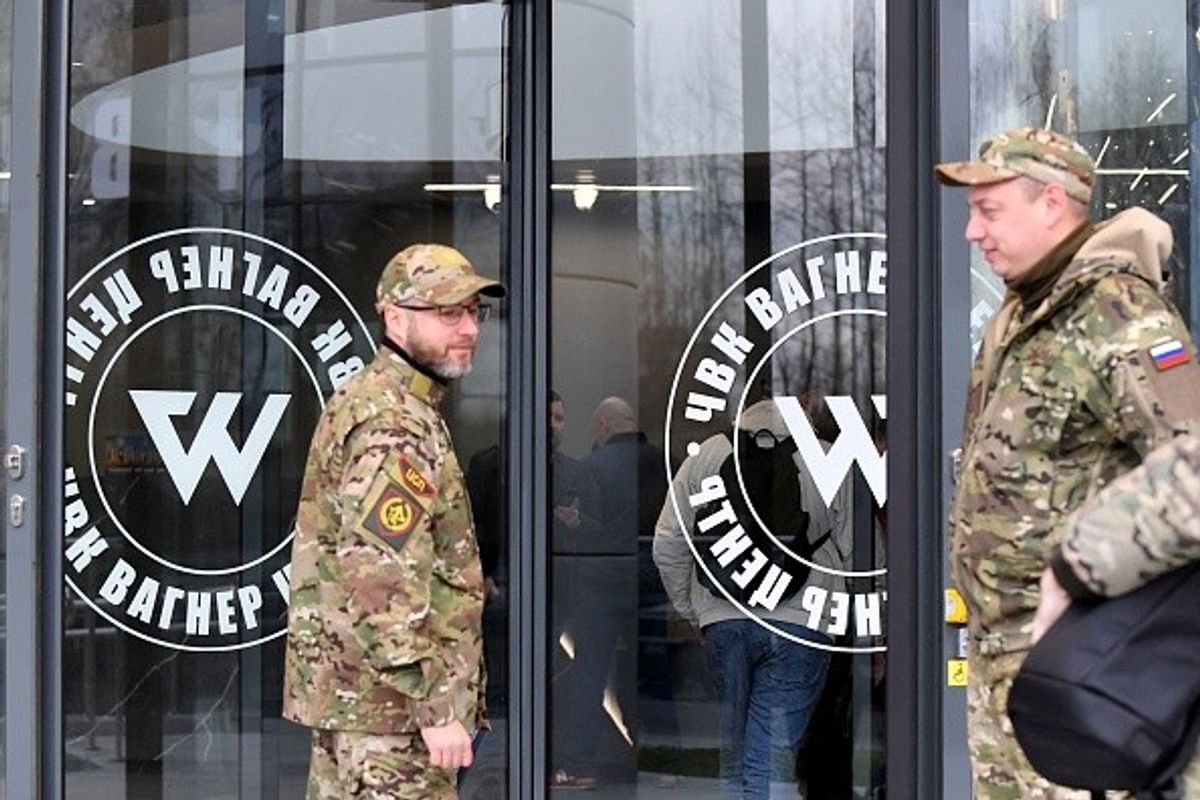EXPERT PERSPECTIVE — As the Russian war against Ukraine enters its 11th month, Moscow has fallen dramatically short of the military goals it set out last February. After initial gains in the first weeks of the war, the Russian military struggled to consolidate its positions and suffered embarrassing setbacks, forcing retreats in multiple areas.
Portions of Ukraine that Moscow currently controls, are limited to the south and east of the country and are estimated to represent less than 20% of Ukraine's total territory.
Cipher Brief Expert and Former CIA Director General (Ret) David Petraeus said last October, that the pressure on Russian President Vladimir Putin was mounting and that “The battlefield reality he faces is, I think, irreversible”. And Russia’s battlefield losses in personnel, equipment, and munitions have continued, putting pressure on Russia's defense industry and forcing Moscow to seek help from allies like Iran and reportedly, North Korea.
Russia’s setbacks – considerable as they are – do not seem to indicate that its forces in Ukraine are near collapse, or that the country’s overall military viability cannot be restored and Moscow has signaled that it can to learn from its mistakes and adapt lessons learned on the battlefield.
The ultimate outcome of Russia's war in Ukraine now depends on variables including the battlefield performance of its regular and “proxy” forces (such as the Wagner Group) and how Moscow is able to mitigate the uncertainties surrounding military training, troop morale and Russia’s capacity to replenish equipment and munitions.
BACKGROUND
- By western accounts, Russia’s invasion of Ukraine has not gone according to plan and has been described as strategic blunder by Putin. By the end of March 2022, Russian forces had withdrawn completely from northern Ukraine.
- Moscow has recently concentrated its efforts on the Donbas region, but has realized few battlefield successes. Subsequently, Ukrainian counter offensives have achieved multiple successes in Kharkiv and Kherson.
- In the opening weeks of winter, battlefield advances by both sides slowed, even as Russia embarked on a massive campaign of missile and artillery strikes against Ukrainian infrastructure and civilian targets as NATO and the West continue to increase military support for Ukraine.
- In December, Russian President Vladimir Putin visited a Russian arms manufacturer where he spoke of the importance of improving the military logistics system and promised to give the Russian Army whatever it needed in its war against Ukraine.
- Moscow has shuffled its senior military leadership once again and appointed Chief of the General Staff of the Russian armed forces, Army General Valery Gerasimov as commander of Russian forces in Ukraine.
- A second wave of mobilization has been posited as a potential Russian solution to stabilizing and improving its military prospects. This possibility, coupled with the reinforcement of defensive positions, limited offensive initiatives, and recovery of critical supply chains, are key factors as the conflict approaches its one-year anniversary.
THE EXPERTS
The Cipher Brief tapped two of our experts for their perspective on what this means. Both have served as Director of the Defense Intelligence Agency.
Robert P. Ashley, former director of the Defense Intelligence Agency.
Lieutenant General Robert P. Ashley, Jr. is a career Army intelligence officer having served over thirty-six years on active duty. He retired from the Army on 1 November 2020. His final assignment was as the 21st Director of the Defense Intelligence Agency from October 2017 to October 2020, where he reported directly to the Under Secretary of Defense for Intelligence and Security and the Secretary of Defense.
Vincent R. Stewart, former director of the Defense Intelligence Agency.
Lieutenant General Vincent Stewart (Vince) is the Founder and CEO of Stewart Global Solutions, LLC, an international consulting organization. He retired from the U.S. Marine Corps after more than 38 years of active service. He served as the Deputy Commander United States Cyber Command, one of the 11 Combatant Commands of the Department of Defense with military and civilian personnel stationed worldwide and also served as the 20th Director of the Defense Intelligence Agency (DIA).
The Cipher Brief: What is your overall impression of Russia's military status in Ukraine, and what do you think of Moscow's prospects for stabilizing its forces, and even taking the initiative on the battlefield?
Ashley: Russia’s path of disengagement and backing off is probably going to give its military some breathing space to figure out exactly how they're going to reorient. They did a withdrawal under some degree of pressure — back over a bridge, which is not an easy task. They had spread themselves too thin. All of their assumptions about what the Ukrainians were going to do in terms of resistance in the fight, were clearly well off the mark. So now, you've seen a little of the disengagement. They're going to have to pick the locations where they want to fight without thinning out their ranks.
One can see the ongoing effort to destroy Ukraine's infrastructure, but I think we're premature to judge that the Russian military is incapable of reorganizing to some degree and achieving an improved level of battlefield effectiveness. Can they take the entire country? No. Are they going to be able to hold some of the provinces and Crimea? Possibly. Maybe that's a readjustment of their strategy with the long-term hope that the West and the Americans will, at some point, agree to a negotiated settlement of a frozen conflict. That is, they’ll be able to hold what they have and figure out exactly what they are going to do to correct the long-term error, in terms of rebuilding combat power over time. Anything that allows them to keep the eastern provinces and Crimea will always keep Ukraine at risk.
Clearly, there are discussions of options. We hear from the Ukrainians that the Russians are discussing whether or not they're going to go through a second mobilization. Pulling back a little bit allows them to refit, go through this mobilization process and look at where they are from a training standpoint, and then look at where they are from a logistics standpoint in terms of how long can they sustain the current expenditure of munitions.
Stewart: If you start with the idea that “I've got superior force ratio and this is going to be a quick in and out” and that collapses, then you've got challenges that we see them dealing with now to include poor logistics, poor tactical leadership, poor operational leadership, poor operational level of forces and poor use of air in support of operations. Now, you have really a strategic stalemate and neither side has the resources. Russia still has some resources that can tip the scale, but it would be disastrous, globally.
When you have one side that it will not give up one inch of Ukraine territory, which is Ukrainian President Volodymyr Zelensky's position, and you've got the other side saying, "I am a dominant global power, I have the resources to take unilateral regional action," and that has failed, it's an ego and face-saving issue now. Russian President Vladimir Putin can't commit to failure.
Russia continues to have some industrial capacity to build stuff. What I don't know is if they have is the resources, the raw materials, access to the raw materials to build stuff. Clearly, you see an attempt to carve out a small portion of Ukraine in the Donetsk, in Luhansk, in Crimea, and claim that those regions represent, in fact, Russian victory.
I think they're trying to claim some tactical operational victory in that portion of Ukraine, but unless they resort to extreme measures, it is unlikely they have the resources to defeat Ukraine's military in the next several months.
The Cipher Brief: What about managing supply chain issues?
Ashley: When it comes to supply chain issues, collectively, Russia is going to have to start figuring out where they can strip and cannibalize electronics for any kind of repair. By some of the estimates I've seen, they're getting into the magnitude of 'years' to be able to rebuild. As long as they're unable to get all of the components they need, they're going to have to rely on some over-industrialized kinds of weapon systems in the inventory, and that's going to impact not only their ability to replenish but their ability to modernize going into the future.
All of it has a cumulative effect. The fact that they've not been able to establish air supremacy is one thing. I don't know whether that is a deliberate decision so they don't lose aircraft and resources, or if they've decided to prioritize the ground forces and let those get chewed up but there is a cumulative effect here that the sanctions will make this more problematic over time.
And even without electronic components, can they even build it back? Who's going to help restore some of those supply chains? Can they get it through China? Can they get it through Iran and other nations that are willing, or other industrialized countries that don't really care, they're just willing to sell it?
Stewart: The Russian way of war is heavily dependent on artillery. We've seen massive use of artillery to support, maneuver forces and the use of artillery that targets all sectors of infrastructure to cause fear. So I think you're going to see, increasingly, Russia's shortfall in artillery. This intensive dependence is especially apparent during this winter campaign. I only have access to open sources, but that indicates to me that we're seeing an increase in reliance on North Korea for artillery capability.
We're also seeing an extensive partnership in the trading of munitions and technology with Iran in terms of volume. I would not have anticipated that Russia would turn to North Korea and Iran for munitions, for unmanned systems, for technology. Clearly, there's some internal pressure and some internal limitations that have put them in that position. I don't know if this is long-term strategic or just a matter of expediency (except for Iran), but it speaks volumes about the capacity both to build and sustain if Russia is now turning to Iran, North Korea and maybe to a lesser extent, China for munitions to execute the campaign.
The Cipher Brief: Gazing into your crystal ball, what do you think Russia will do in the next six months, militarily?
Ashley: The next six months is really for Russia to prepare whether they have to have a second wave of mobilization. I think their focus will be on logistics preparation to sustain and continue. I think they will try to solidify the ground that they've occupied thus far and to some degree, reinforce Crimea so they do not lose any ground while they position themselves for what may be either additional offensives or an inevitable stalemate where they would hope to get the West and NATO to a point to negotiate.
How they are able to shore up the logistics will be critical from their point of view. There are other considerations such as Belarus, although I don't know that we're going to see the direct involvement of Belarus. The Ukrainians are also warning about another Russian push for Kyiv. We need to understand how much of that is meant to inform the West, and how much of it is meant to influence in order to accelerate weapons deliveries and other support. Not that the Ukrainians are trying to deceive, but if they've got any kind of concerns along those lines, they can use that as a means to accelerate support.
Another part of this is Russia’s destruction of Ukraine’s infrastructure, something I think is being done with the intent of driving towards some kind of a settlement. I don't think Putin is going to admit that he can't get all of Ukraine, but I think that realization may be presenting itself to him.
Stewart: Intensifying suffering through this winter period becomes really important as we see in Russia's targeting of civilian infrastructure. Putin is targeting the third part of Clausewitz’ “Trinity of War” — the people. Maybe as a result of extensive artillery attacks on critical infrastructure, he can make winter so bleak, that Zelensky will feel for his people, or his people will oppose continuing the campaign and push for a ceasefire, a peaceful solution going forward. I expect really intense activity in the winter. Putin is mindful of the coming winter thaw and movement challenges that will present, so I expect the intensity of the winter effort to pick up.
I also expect Russia to again try to consolidate in the south to give the impression that the region is under its control. So, isolate and control the southeastern part of Ukraine, bring pain and suffering to the Ukrainian people throughout the winter, and quietly try to find someone who will step in and negotiate, could lead to, “we'll stop if they stop and let's start talking.” Putin's got to win the winter campaign, bottom line.
Cipher Brief Senior Editor Ken Hughes contributed to this report
Read more expert-driven national security perspectives and analysis in The Cipher Brief, because National Security is Everyone's Business






